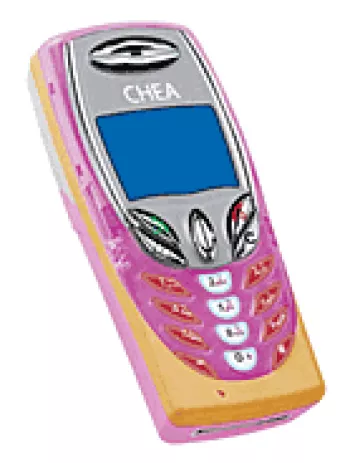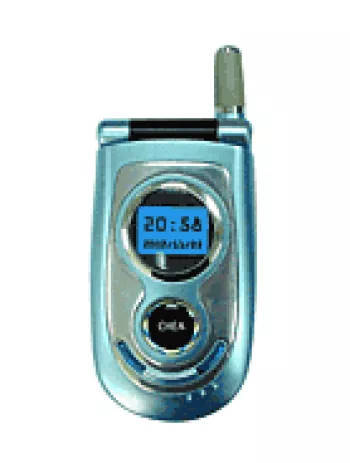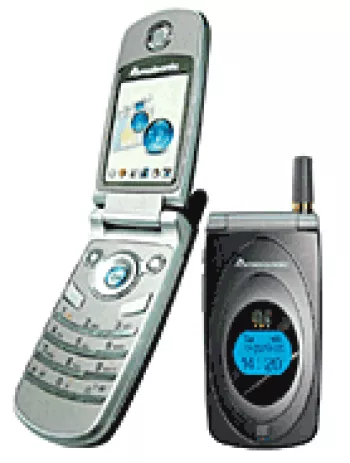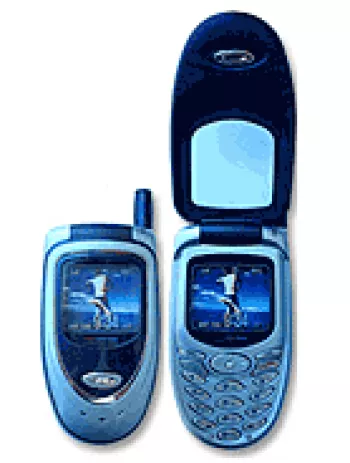
Overview of Chea 168
The Chea 168, announced in the second quarter of 2003, is a feature phone that reflects the mobile technology of its time. The device, now discontinued, catered to users who needed basic communication functionality without the complexities of modern smartphones. Despite its simplicity by today's standards, the Chea 168 served as a reliable communication tool.
Network Capabilities
The Chea 168 supports GSM technology, operating on 2G bands specifically at GSM 900 / 1800 frequencies. This limitation to 2G was typical for phones during this era, as faster networks such as 3G and 4G were not yet widespread. The absence of GPRS and EDGE means that the device did not support mobile data, focusing entirely on voice communication and SMS capabilities.
Design and Build
The design of the Chea 168 is compact and practical. It features dimensions of 106 x 45 x 20 mm, making it portable and easy to handle. Weighing just 80 grams, it is lightweight enough for everyday carrying. The phone uses a Mini-SIM, a standard at the time, which is larger than the micro and nano SIMs used in modern devices.
Display Characteristics
The phone is equipped with an FSTN monochrome graphics display, which was common before the widespread adoption of color screens. While the screen size is unspecified, the resolution is 112 x 64 pixels with a 16:9 aspect ratio. This limited display is sufficient for text-based applications like SMS but does not support any form of multimedia.
Memory Details
Memory capacity on the Chea 168 is intentionally minimal. The phone does not support additional storage via card slots, which confines it to its internal capabilities. It features a phonebook that can store up to 100 contacts, adequate for basic use. There is no specification for storing call records, emphasizing its basic utility focus.
Sound Features
In terms of sound, the Chea 168 includes a loudspeaker for hands-free calls or playing ringtones. It supports vibration alerts, polyphonic ringtones, and a composer for creating custom ringtones. However, it lacks a 3.5mm jack, making personal listening via headphones impossible without an external adapter or accessory.
Communications and Connectivity
Connectivity options on the Chea 168 are very limited. There is no WLAN or Bluetooth support, meaning it cannot connect wirelessly to other devices. Additionally, there is no positioning capability, such as GPS, and the device does not include a radio. These limitations are reflective of the technology at the time of its release.
Software and Features
The phone operates on a basic feature phone operating system. It includes essential utilities like a clock and alarm. The messaging capability is limited to SMS, without support for multimedia messaging. The device comes with three built-in games, a typical inclusion for entertainment at the time. It supports major European languages, making it accessible in multiple regions.
Battery Life
The Chea 168 uses a removable Li-Ion 650 mAh battery. This battery offers a standby time of up to 160 hours and a talk time of around 3 hours. This endurance was considered reasonable for feature phones, as the lack of demanding applications and network connectivity helped conserve energy.
Conclusion
The Chea 168 is a testament to early 2000s mobile phone design, focusing on basic communication needs without the frills of modern smartphones. Its simple feature set made it an accessible choice for users looking for reliability and ease of use. Despite its now obsolete technology, the Chea 168 remains a piece of mobile history, showcasing the evolution of phone design and functionality over the decades.
Main Features of Chea 168
- Compact and Lightweight: Dimensions of 106 x 45 x 20 mm and a weight of 80 g
- GSM Technology: Supports GSM 900 / 1800 bands
- Simple Display: FSTN monochrome graphics with a resolution of 112 x 64 pixels
- Basic Phonebook: Capacity to store up to 100 contacts
- Polyphonic Ringtones: Comes with vibration and ringtone composer
- Removable Battery: Li-Ion 650 mAh battery with up to 160 hours standby time
- Includes Basic Games: 3 built-in games for entertainment
- Support for Major European Languages
Drawbacks of Chea 168
- Only supports GSM technology with limited 2G bands, lacking modern mobile network connectivity.
- Absence of GPRS and EDGE for data connectivity.
- Discontinued status, meaning no longer supported or updated.
- Monochrome display with low resolution (112 x 64 pixels), which may not be sufficient for modern usage.
- No expandable memory card slot, limiting storage capacity to phonebook entries only.
- Lack of a camera feature.
- No 3.5mm headphone jack, limiting audio accessory compatibility.
- No support for modern communication features like WLAN, Bluetooth, positioning, or radio.
- Only supports basic messaging (SMS) with no advanced messaging or internet browsing capabilities.
- Limited to three pre-installed games and no support for additional applications or Java.
- Small battery capacity (650 mAh) and limited talk time of up to 3 hours.
View Also
More Phones
All Rights Reserved +13674 Phones © Mobilawy 2025
























